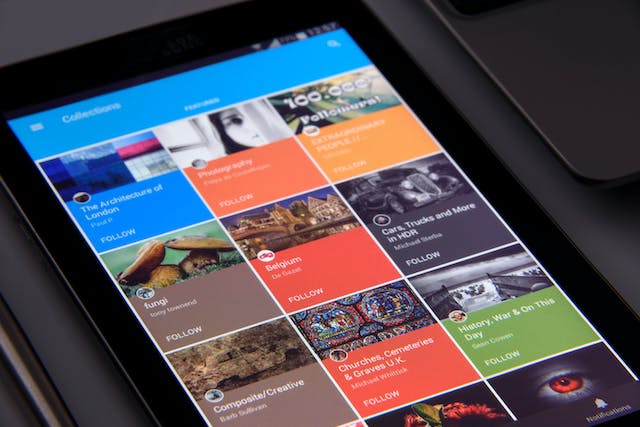Top-Rated Direct Hire Staffing & Recruitment Agency

A Leader Among IT Recruitment Firms
Tier2Tek Staffing agency is one of the most reputable employment agencies providing recruitment services to multiple industries.
Moreover, Tier2Tek’s dedication to culture and excellence makes us one of the most trusted national agencies.
We take the time to learn about your company and ideals.
Compared to other employment professionals, our recruiters have enterprise recruitment experience. Furthermore, we provide job agency services such as direct-hire permanent placement, contract-to-hire, seasonal, outsourced contracted, and project-based employment staffing. In addition, we also have high success rates for being an executive search firm. Ultimately, our process is both perfected and practiced.
We are based out of Denver, helping the metro area and its surrounding towns staff for over a decade. We also staff nationally. Anytime, anywhere.
When it comes to staffing agencies in Denver, Tier2Tek is ranked among the top companies to work with according to Expertise.
Best-in-Class Staffing Solutions
Most importantly, our technical recruiting options are flexible and thorough. Moreover, let our recruitment experts help solve your staffing gaps today!

Access to a Wider Talent Pool
Tier2Tek taps into a vast database and industry networks to quickly find qualified candidates that match your specific needs.

Reduced Time and Cost of Hiring
Tier2Tek handles the time-consuming aspects of recruitment, such as screening and initial interviews, reducing your hiring costs and time to hire.

Top 2% Professionals
Above all, we submit only the top 2% of qualified and professional candidates.

Quality Candidates
Through rigorous screening and assessments, Tier2Tek presents only the most qualified candidates, ensuring a good fit for your team.

Focus on Communication
First, we make sure we understand our client’s business and culture. Afterward, our employment agency stays connected and periodically touches base. Finally, our time to respond is one hour or less.

No Commitment
If you are not satisfied with the candidates we provide you, you are not obligated to pay anything. We will go back to the drawing board to find you the perfect employees.

Why Choose Tier2Tek?
Tier2Tek Staffing has years of experience in sourcing and recruiting the right candidate for your workforce. We work in multiple industries locating top-qualified candidates in dynamic markets. Moreover, our sourcing speed is fast and accurate. Let’s find the perfect match for your vacant position!
- Commitment to Excellence
- Innovative Technology in Recruitment
- Exclusive Candidate Pool
- Transparent Communication
- Proven Track Record
- Affordable Staffing Solutions

Our Services
Direct Hire: Recruitment and Placement Services
Our recruitment and placement services are designed to simplify the hiring process for employers. We carefully source, screen, and assess candidates to ensure they align with your company culture and specific job requirements. Whether you’re looking for a single hire or building an entire team, Tier2Tek provides end-to-end recruitment solutions.
Job Seeker Support
At Tier2Tek, we’re more than a job agency; we’re your career partner. Our job seeker support services are dedicated to helping individuals find their dream jobs. We provide resume writing, interview coaching, and career counseling to ensure that candidates are well-prepared and confident in their job search.

Industries
At Tier2Tek Staffing, we pride ourselves on our extensive industry expertise. Our team comprises seasoned professionals with deep knowledge in various sectors, including IT, management, finance, engineering, and more. We understand the unique demands of each industry, enabling us to make precise and informed staffing matches.

Innovative Technology in Recruitment
At Tier2Tek Staffing, we lead the way with our tech-driven recruitment approach. Our commitment to innovation means that we harness the power of state-of-the-art technologies to make the hiring process smoother, more efficient, and more precise.
- Artificial Intelligence in Talent Scouting
- AI-Powered Candidate Matching (Advanced Job Matching Algorithms)
- Advanced Resume Parsing
- Data-Backed Decision Making
- Blockchain Security in Hiring
- Predictive Analytics for Talent Retention
- Personalized AI Job Recommendations

Temp Agency or Direct Hire?
Top candidates look for companies that are vested in them. It’s rare to find the best candidates willing to work short-term, temporary positions or even temp-to-hire roles. Tier2Tek Staffing works with some of the top candidates in the market open to new opportunities.
Let us know about your unique hiring needs and we will identify the perfect candidate for your growing needs. Unlike a temp agency, we provide long-term solutions focused on quality. Our direct-hire model is ideal for businesses and job seekers.
Experienced Employment Agency
Statistics
#1↑
Staffing Company Searches
Highly ranked by google for recruitment services in multiple industries.
4.9 ★
Google Reviews
Most importantly, we currently have 5.0 stars from real clients and people we’ve helped land careers.
100%
Satisfaction
Above all, our service provides Great Rates, Great Quality, and 100% satisfaction guarantee.
Google Testimonials for Tier2Tek Staffing Company
Hidden gem. We had a few difficult positions to fill and decided to work with Tier2Tek staffing. Every candidate had stable work history, exceptional communication skills and met all our JD requirements. Huge timesaver and well worth it!
J.PROTICH
AVP of Talent Strategy, Managed Services
The agency provided us with direct-hire candidates on short notice. We hired two so far through them and are very pleased. Much better rates and quality over other staffing agencies we have worked within the past.
J.NASRA
IT Director, Telecommunications Company
Latest Tier2Tek Articles
Labor Market News

April 24, 2024
Bus Drivers Strike with Climate Activists in 57 German Cities – Transit workers founded the alliance #WirFahrenZusammen (“We ride together”), calling for better working conditions and expansion of public transit as two keys to meeting Germany’s climate goals.
April 23, 2024
The new role of the HR business partner: Powering Systemic HR™ – In today’s rapidly evolving business environment, the HR business partner (HRBP) role emerges not just as a pivotal element but as the unsung hero steering systemic HR transformation. This role, often underestimated, is at the heart of bridging the gap between the HR function and core business operations.
April 22, 2024
Most workers not confident they’ll retire by their mid-60s, survey finds – The spectrum of research on retirement benefits has revealed growing financial anxiety in recent years that is felt unevenly across demographic groups.



